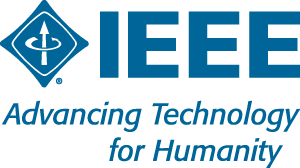
|
The Fifth ACM/IEEE Symposium on Edge Computing Virtual, November 11-13, 2020 |
|---|



Keynote
Main Conference
Managing Edge Computing at Scale
Rob High
IBM
Wednesday, Nov 11, 2020

Abstract: As the edge computing market place emerges and production use cases begin to solidify, we turn our attention to the problems of how to manage edge computing deployments at scale. In this talk we will examine the issues of production scale -- including issues of diversity, dynamism, and security, and how those issues are amplified by scale and geographic distribution. We will compare the similarities and dissimilarities between edge computing and cloud computing -- their synergies and their contradictions. We will evaluate the Open Horizon open source project (currently in early adoption phases at Linux Foundation), and how it addresses some of these issues. And we will identify areas of additional research and development needed to address the needs of the edge computing marketplace.
Bio:
Rob High is the Vice President and Chief Technology Officer for the IBM Edge Computing portfolio. Rob has
architecture and technical strategy responsibility for offerings that will enable a new generation of edge
computing -- where work is placed close to where data is produced and actions are performed. Prior to this
assignment he was the CTO for IBM Watson, responsible for setting the technical strategy and vision for
IBM's leadership in AI computing. Rob High is recognized as a global technical leader, author and evangelist,
and was named an IBM Fellow in 2008 for his pioneering work in the field of SOA and for his leadership on WebSphere.
Edge-based Rapid Service Recovery for Resilient Communications
Steve Beitzel
Perspecta Labs
Thursday, Nov 12, 2020

Abstract: Network users expect reliable, predictable communications services. Impairments from equipment failures, network mis-configuration, severe congestion, and route-convergence delays interfere with reliable service delivery. In addition, networks are vulnerable to cyber attacks whose nature and impacts may defy rapid diagnosis and repair. In this talk we will examine a variety of impairment mitigations that can be employed by edge-based points of presence. We will demonstrate how edge-based analytics can inform rapid service recovery in response to attacks and other network disruptions without requiring detailed introspection into core network architecture or services. Finally, we will conclude with a brief discussion of additional benefits that we can accrue from leveraging edge and core points of presence in combination.
Bio:
Dr. Steve Beitzel is a Research Director, Chief Scientist, and Technical
Fellow at Perspecta Labs. Dr. Beitzel leads several programs in cyber
security, resilient networking, network defense, and next-generation
command and control research for the U.S. Government. He is currently
the Principal Investigator (PI) for the DARPA/I2O EdgeCT and Extreme
DDoS Defense (XD3) programs. He was previously a PI on the DARPA Plan X
program, performing research in foundational cyberwarfare and computer
network operations and PI for the U.S. Army CERDEC’s CRUSHPROOF computer
network defense program. Dr. Beitzel is an expert in host and
network-based security and edge computing, and has designed and
implemented large software systems covering nearly all aspects of the
full-spectrum computer network operations domain. Dr. Beitzel has a
Ph.D. in Computer
Science from the Illinois Institute of Technology, and has published
over 35 refereed conference and journal papers in a wide variety of
areas.
Workshops
High-Confidence Computing in a Smart Connected World
Xiuzhen "Susan" Cheng
George Washington University
Friday, Nov 13, 2020
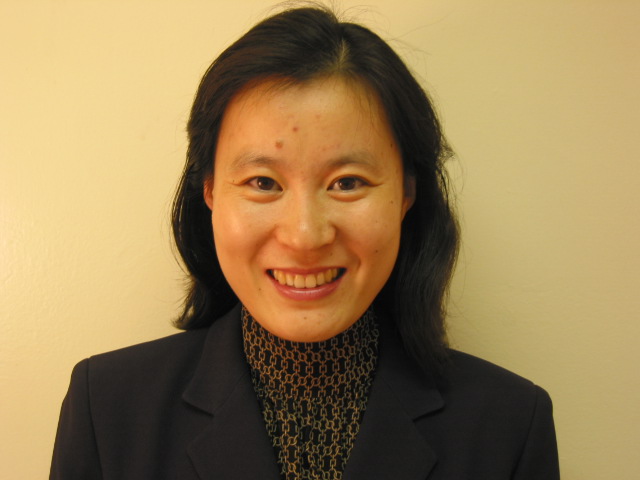
Abstract: High-Confidence Computing (HCC) is a new computing paradigm that can enable the integrations of secure computing, precise computing, and intelligent computing. HCC relies on interdisciplinary methodologies to realize secure and trusted software/hardware, precise and process-traceable algorithms, and self-evolving designs that can adapt to new environments and support new applications. Information systems possessing HCC properties can provide collaborative services that are otherwise impossible as security, traceability, accountability, reliability, robustness, extensibility, adaptivity, and self-evolution are all desirable and equally-important properties of modern connected systems such as smart cities. This talk intends to answer the following questions: what is high-confidence computing, why high-confidence computing is needed by smart connected systems, and how to realize high-confidence smart connected systems. We will introduce an architecture to demonstrate our exploratory studies regarding how to integrate state-of-the-art techniques to build a secure and trusted, traceable, and adaptive cyber-physical system in a smart connected world for proof of concept. Open challenges will also be discussed.
Bio:
Xiuzhen Cheng received her MS and PhD degrees in computer science from the University of Minnesota -- Twin Cities, in 2000 and 2002, respectively. She was
a faculty member at the Department of Computer Science, The George Washington University, Washington DC, from September 2002 to August 2020. Currently she
is a professor in School of Computer Science and Technology, Shandong University, China. Her current research focuses on blockchain computing, intelligent
Internet of Things, and wireless and mobile security. She is the founder and steering committee chair of the International Conference on Wireless Algorithms,
Systems, and Applications (WASA, launched in 2006). She served/is serving on the editorial boards of several technical journals (e.g. IEEE Transactions on
Computers, IEEE Transactions on Parallel and Distributed Systems, IEEE Transactions on Wireless Communications, IEEE Wireless Communications Magazine) and
the technical program committees of many professional conferences/workshops (e.g. ACM Mobihoc, ACM Mobisys, IEEE INFOCOM, IEEE ICDCS, IEEE ICC, IEEE/ACM IWQoS).
She also chaired several international conferences (e.g. ACM Mobihoc'14, IEEE PAC'18). Xiuzhen is a Fellow of IEEE.
DOE 5G for Science Research Initiative and Synergistic Opportunities at the Edge
Robinson Pino
U.S. Department of Energy
Friday, Nov 13, 2020
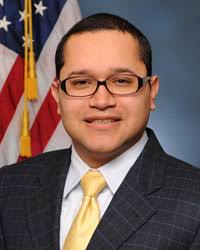
Abstract: This talk will highlight current research and development activities and synergies within the Office of Science at the U.S. Department of Energy with regards to exploring opportunities that can bridge the gap between edge computing and our evolving scientific enterprise. Emerging 5G wireless technologies may offer new opportunities for the advancement various scientific domains in particular when coupled with current state of the art capabilities in high performance computing, networking, artificial intelligence, neuromorphic computing and microelectronics.
Panel
The Evolving Edge: Challenges, Gaps, Opportunities?
Moderator
Eve M. Schooler
Principal Engineer & Director of Emerging IoT Networks, Intel
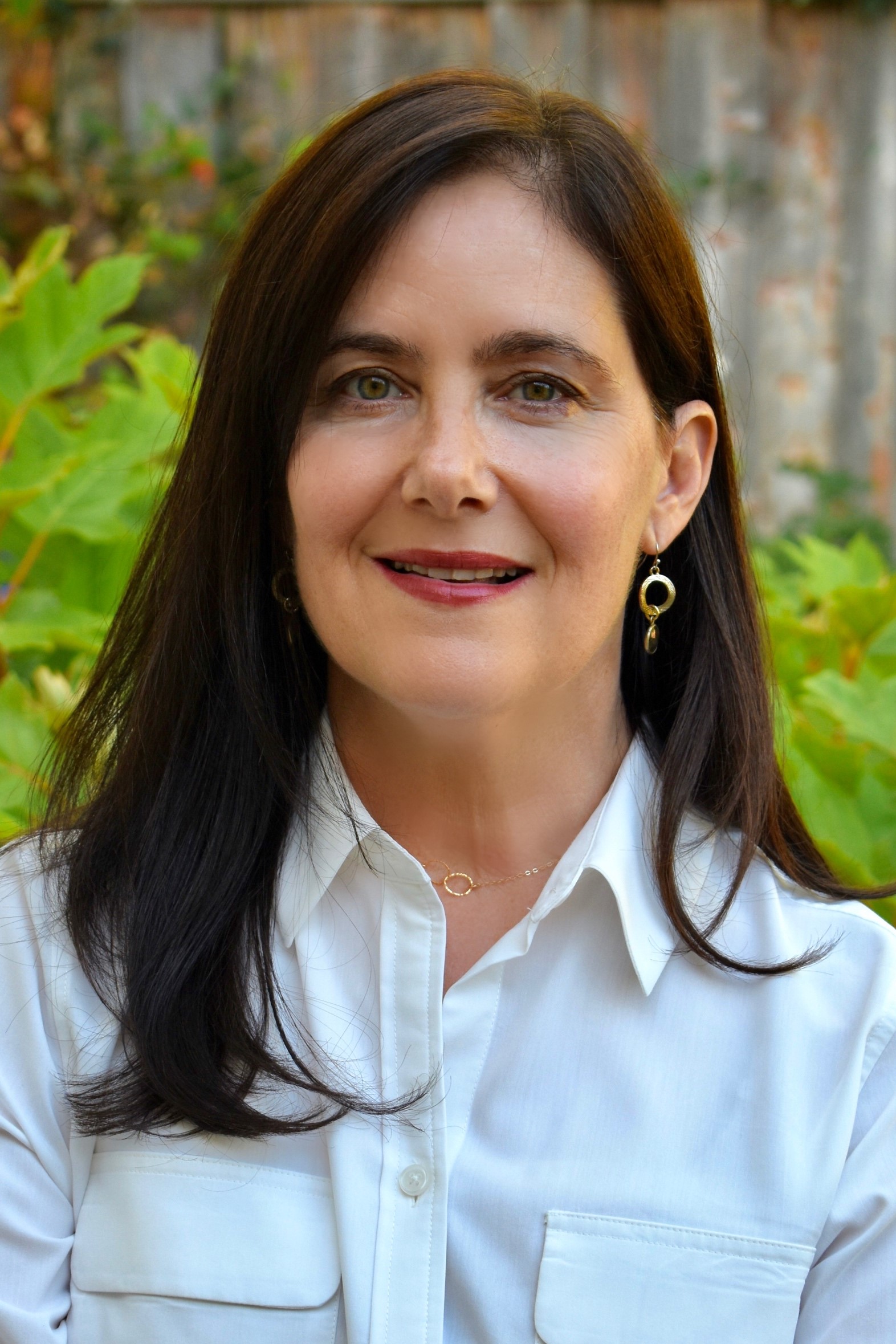
Eve M. Schooler is a Principal Engineer and Director of Emerging IoT Networks at Intel, where she is responsible for setting technical and strategic direction for IoT standards. Her current work focuses on developing architectural building blocks to evolve the Internet toward a data-centric Edge-Cloud continuum and Sustainable infrastructure. While at Intel, she has led R&D on a range of topics including collaborative anomaly detection for network security, data privacy-preservation in Smart Homes, energy efficiency for the Smart Grid, data-centric networking, and reverse CDNs for aggregated video streams in Smart Cities. A recognized expert in distributed systems, Eve has served in leadership positions in various standards bodies, currently serving on the IETF IoT Directorate and co-chairing the Reliable and Available Wireless (RAW) WG and Computing-in-the-Network (COIN) RG. Prior to Intel, she held positions at Apollo Computers, Information Sciences Institute, AT&T Labs-Research, and Pollere. Eve obtained a BS from Yale, MS from UCLA, and PhD from Caltech, all in Computer Science. She is the co-recipient of the 2020 IEEE Internet Award for her work on control protocols for Internet telephony and multimedia teleconferencing.
Panelists
Prashant Tiwari
GM & Director of Intelligent Connected Systems (ICS) Division, Toyota InfoTech Labs
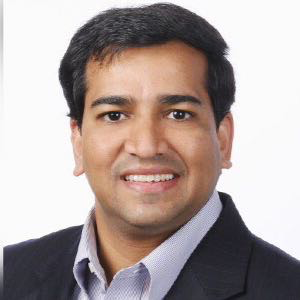
Dr. Prashant Tiwari is GM & Director of Intelligent Connected Systems (ICS) Division at Toyota InfoTech Labs, Mountain View, CA. Dr. Tiwari’s Division is responsible for performing applied research for future connected technologies with focus on car-to-car, car-to-edge and car-to-cloud connectivity on an end-to-end basis and building Toyota’s next generation mobility service platform and edge computing capability. Dr. Tiwari holds MBA from University of Chicago Booth School of Business, PhD from Rensselaer Polytechnic Institute and Masters from Indian Institute of Technology, Delhi. Dr. Tiwari has published several papers and filed several patents and also highly active in Automotive Edge Computing Consortium (AECC) and SAE. Prior to joining Toyota, Dr. Tiwari held several leadership positions of increasing responsibilities at GE & UTC. In his last role with GE, Dr. Tiwari served as Senior Director at GE Aviation Digital. Prior to joining Toyota, Dr. Tiwari held Executive position and led the Embedded Systems & Integrated Project Teams for UTC Aerospace Systems.
Sastry Malladi
CTO, Foghorn

As CTO of FogHorn, Sastry Malladi is responsible for and oversees all technology and product development. Sastry is a results driven technology executive with deep technology and management experience of over two and half decades. His areas of expertise include developing, leading and architecting various highly scalable and distributed systems, in the areas of Big Data, SOA, Micro Services Architecture, Application Servers, Java/J2EE/Web Services middleware, and cloud Computing to name a few.
Prior to joining FogHorn as CTO, Sastry was Chief Architect of StubHub, an eBay company where he led the technology architecture transformation and also spearheaded the Big Data initiatives and data driven decisions. Sastry was also a key technology executive at eBay that lead the technology re-platforming effort from its monolithic architecture to the distributed, and scalable service oriented architecture that it is today enabling the business growth. Prior to joining eBay, Sastry was co-founder and CTO of OpenGridSolutions, Founding member and Architect at SpikeSource, and an Architect at Oracle. Sastry has also worked at many other companies in his career early on.
Sastry frequently speaks at many technology conferences, contributed to many standards and has several patents under his belt. He holds a Masters degree from I.I.T, Kharagpur, India.
Usman Javaid
GM IoT and Head of Emerging Technologies, AWS
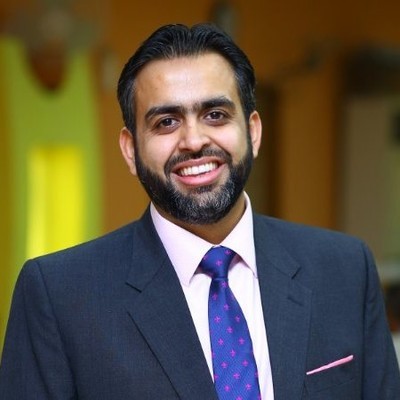
Dr. Usman Javaid is head of IoT and Emerging Technologies at Amazon Web Services (AWS). He is helping the largest enterprises and fast growing Start-ups to accelerate their digital transformation using the AWS global cloud computing platform and emerging technologies Internet of Things (IoT), Blockchain, Space Solutions and Conversational AI.
With a career in the mobile industry spanning across 20 years, Usman led R&D and strategy functions, global field operations and delivered world’s first 4G network in Europe for Vodafone. Previously, he served as Research Scientist with France Telecom leading R&D efforts in collaboration with industry partners in pioneering European and French research programs. Dr. Javaid is a named inventor on ten worldwide patents and authored over 25 international publications. Dr. Javaid holds a PhD and a Master’s degree in computer science.
Weisong Shi
Professor, Wayne State University
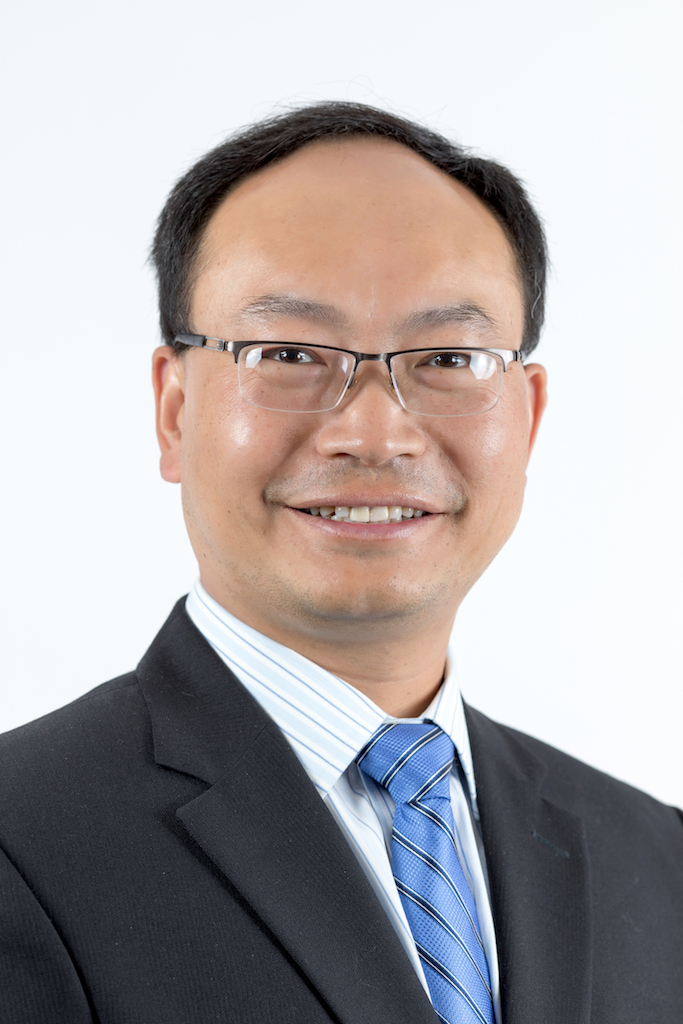
Weisong Shi is a Charles H. Gershenson Distinguished Faculty Fellow and a Professor of Computer Science with Wayne State University, USA, where he leads the Wayne Mobility Initiative (WMI) and directs the Connected and Autonomous dRiving Laboratory (CAR), investigating performance, reliability, power- and energy-efficiency, trust and privacy issues of networked computer systems, and applications. He is one of the leaders in the edge computing research community and has been very actively working on edge computing and its applications in public safety, CAVs, and connected health. His paper entitled “Edge Computing: Vision and Challenges” has been cited more than 2500 times. In 2016, he co-chaired the NSF Workshop on Grand Challenges in Edge Computing. In 2018, Dr. Shi led the development of IEEE Course on Edge Computing. In 2019, Dr. Shi served as the lead guest editor for the edge computing special issue on the prestigious Proceedings of the IEEE journal. He is the Founding Steering Committee Chair of the ACM/IEEE Symposium on Edge Computing (SEC). He is an IEEE Fellow and an ACM Distinguished Scientist.
Bruce Maggs
Director of Engineering, Emerald Innovations / Professor, Duke University

Bruce Maggs received the S.B., S.M., and Ph.D. degrees in computer science from the Massachusetts Institute of Technology in 1985, 1986, and 1989, respectively. His advisor was Charles Leiserson. After spending one year as a Postdoctoral Associate at MIT, he worked as a Research Scientist at NEC Research Institute in Princeton from 1990 to 1993. In 1994, he moved to the Computer Science Department at Carnegie Mellon, where he eventually achieved the rank of full Professor. While on a two-year leave-of-absence from Carnegie Mellon, Maggs was a founding employee of Akamai Technologies, serving as its first Vice President for Research and Development. In 2009, Maggs joined Duke University, where he is the Pelham Wilder Professor of Computer Science. In 2018 he was part of a large team that received the inaugural ACM SIGCOMM Networking Systems Award for the Akamai Content Distribution Network, and was named an ACM Fellow. Maggs is currently on leave from Duke and is serving as Director of Engineering for Emerald Innovations.


